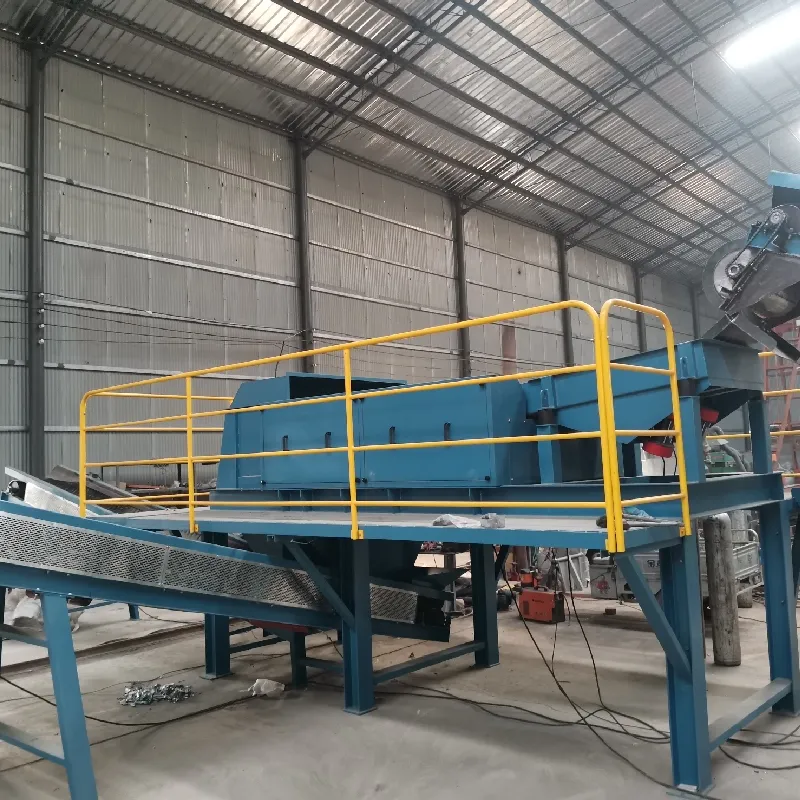

Ara . 24, 2024 22:50 Back to list
The MSW Sorting Plant A Catalyst for Sustainable Waste Management
In recent years, the importance of effective waste management has become increasingly evident as urbanization and consumption patterns lead to an exponential rise in municipal solid waste (MSW). One of the most effective strategies for addressing this escalating problem is the establishment of MSW sorting plants. These facilities play a crucial role in the recycling process and serve as a catalyst for sustainable waste management practices.
A municipal solid waste sorting plant is designed to sort and separate different types of waste materials. The primary objective is to recover valuable resources while minimizing the volume of waste sent to landfills. The sorting process typically begins with the collection of mixed waste from residential, commercial, and industrial sources. Once the waste arrives at the facility, it undergoes a series of mechanical and manual sorting processes.
The MSW Sorting Plant A Catalyst for Sustainable Waste Management
One of the significant benefits of an MSW sorting plant is its ability to enhance recycling rates. By effectively separating recyclable materials, these plants can significantly reduce the amount of waste sent to landfills. For instance, materials like plastics, glass, and metals have substantial market value, and their recovery helps to conserve natural resources. Recycling these materials also consumes less energy compared to producing new materials from raw resources, resulting in lower greenhouse gas emissions—a critical consideration in the fight against climate change.

Furthermore, MSW sorting plants contribute to the circular economy by transforming waste into valuable products. Once separated, the recyclables are sold to manufacturers who use them as raw materials, effectively extending the lifecycle of the products and reducing the need for virgin materials. This not only fosters economic activity but also encourages responsible consumption among the general public.
Another essential aspect of sorting plants is their educational role in waste management. Many facilities include visitor centers that provide information about effective waste sorting and recycling practices. By promoting public awareness, these plants can influence behavior change, leading communities to adopt more sustainable waste management habits.
Despite their many benefits, MSW sorting plants also face challenges. For instance, the quality of the collected waste stream can vary significantly based on the community's recycling programs. Contaminated recyclable materials can lead to increased processing costs and lower quality output. To mitigate this, public education campaigns and improved waste collection systems are critical.
In conclusion, MSW sorting plants play an indispensable role in contemporary waste management strategies. By efficiently separating recyclables from waste, they contribute to reduced landfill reliance, promote environmental sustainability, and support the circular economy. As urbanization continues to rise, the establishment and improvement of sorting plants can provide an effective solution for managing municipal solid waste, turning it from a problem into a valuable resource. Encouraging collaboration among governments, communities, and industries will be essential to optimize the performance of these facilities, ensuring a cleaner, greener future for all.
Latest news
Eddy Separator for Non-Ferrous Metals
NewsAug.22,2025
E Waste Bin for Collected Spray Cans: Sustainable Disposal Solutions
NewsAug.22,2025
Dual Shaft Shredder with Adjustable Blade Gaps
NewsAug.22,2025
Hammer Crusher Machine With Secondary Crushing
NewsAug.22,2025
Copper Granulator Our Promise of Recycling Excellence
NewsAug.22,2025
Industrial Shredders Crafted for E-Waste Recycling
NewsAug.22,2025